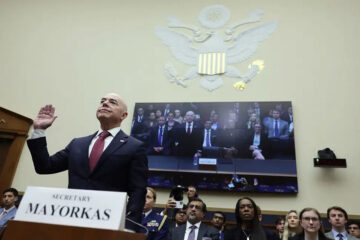SCOTUS Deliberates Media Influence

The Supreme Court of the United States (SCOTUS) recently aired concerns about the media during oral arguments on the case Murthy v. Missouri, raising questions about the government’s role in regulating social media content.
Case Overview
In Murthy v. Missouri, the justices are deliberating whether the government’s request for social media companies to make specific content decisions violates the First Amendment. The plaintiff’s lawyers argue that such requests amount to coercion.
Government Intervention
The case stems from complaints filed by Missouri and Louisiana in 2022, alleging censorship by government entities like the White House and the Centers for Disease Control and Prevention. These entities purportedly pressured social media platforms to remove COVID-19 vaccine misinformation and election fraud conspiracy theories.
Justices’ Perspectives
During oral arguments, SCOTUS justices expressed varying views on government influence over social media. Justice Samuel Alito likened platforms like Facebook to “subordinates” of the government, criticizing what he perceived as unfair pressure. However, Justice Brett Kavanaugh countered, citing his experience with government press interactions during the Bush administration.
Insights from Justices
Justice Elena Kagan shared her encounters with press interactions in the Clinton administration, highlighting the commonplace nature of such exchanges. Chief Justice John Roberts emphasized the diversity of government perspectives on social media moderation. Justice Ketanji Brown Jackson contributed to the discussion by presenting a hypothetical scenario involving dangerous internet challenges.
Potential Implications
Media outlets predict that the court may favor the Biden administration’s stance that its actions were not coercive. However, a decision is not expected until June or July. Meanwhile, an injunction from the Fifth Circuit of Appeals prevents government officials from contacting social media companies, but its fate in the Supreme Court remains uncertain.
Conclusion
The ongoing case underscores the complex intersection of government regulation, media influence, and free speech rights in the digital age. As SCOTUS deliberates on Murthy v. Missouri, the outcome could have far-reaching implications for the regulation of social media content and the protection of First Amendment rights.











